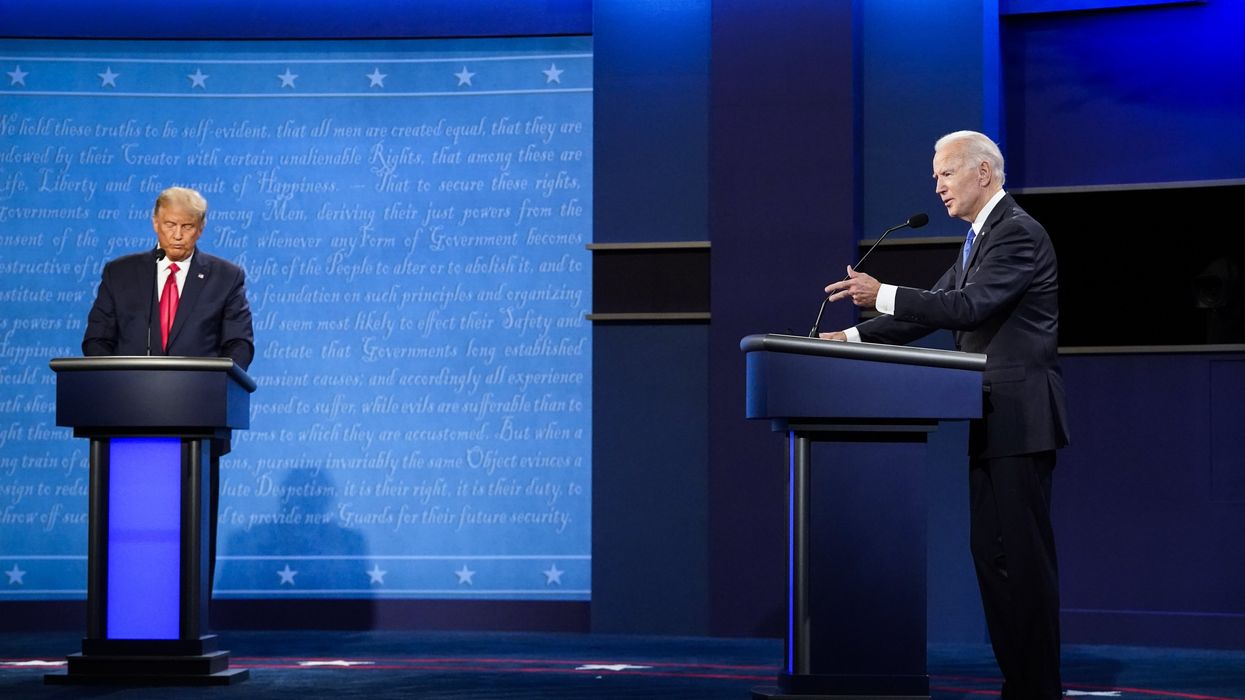Anderson edited "Leveraging: A Political, Economic and Societal Framework," has taught at five universities and ran for the Democratic nomination for a Maryland congressional seat in 2016.
The United States is on -ism overload, especially if you are in politics, the media or academia.
Depending on who you follow on television, the radio or your phone, there is the ongoing battle between capitalism and its critics, the battle between the forces of democracy and the forces of authoritarianism, the battle between liberalism, conservatism and centrism, the related battle between liberalism, conservatism and independents. Then there’s Kantianism vs. utilitarianism concerning future generations, feminism vs. the establishment, and the international relations battle between realism and liberal internationalism.
Yes, all of these -ism battles are raging and most are vying for primary attention. What is a citizen — in their 20s or of retirement age, college educated or not, urban, suburban or rural — to think?
There is no clear answer to that question. What is for sure is that there is no best way to formulate the dominant battle in American politics and society today, and there certainly is no shared vocabulary or framework that the majority of the public or the majority of the pundits use.
What may be helpful to point out is that there are a couple of master battles that do dominate the airwaves, and some are formulated as two-way fights and some are formulated as three-way contests.
The two-way battle is between democratic liberalism and authoritarianism, formulated by the former and not the latter. Thus many Democratic politicians, notably President Joe Biden, say their side is the party of democracy and former President Donald Trump and the GOP are the party of authoritarianism, even fascism.
This formulation is reminiscent of World War I and World War II, as well as the Cold War. There are, in short, the good guys and the bad guys. Election 2024 is therefore between the forces of good and the forces of evil according to the Democratic Party. To the Republican Party, there is also a master two-way battle underway, but it is between the wise, prudent, fiscally responsible Republican Party and the left-wing, fiscally irresponsible, woke socialist Democratic Party.
Both think the other is the real threat to our democratic republic
For citizens, you can either wear glasses that frame our politics in this very simplistic, overstated way, or you can choose to see politics through one of several three-way battles. The one which is most illuminating is that between Democrats, Republicans and independents. It is the most illuminating because the independents, according to Gallup and others, make up 40 percent to 45 percent of American voters, even though there are only a handful of members of the House and Senate who are independents, (Sen. Bernie Sanders, Angus King, Kyrsten Sinema and, as of late, Joe Manchin).
What is striking about the contrast between the two master formulations is that the independents have little to no representation in Washington, even though the 70 million to 100 million Americans who fall into this category are, in their own way, in a battle with citizens who are registered Democrats and Republicans and politicians who are elected as Democrats and Republicans.
At the very least, an honest American should feel some degree of confusion about how we can have a major war between Democrats and Republicans concerning the core values they stand for and a battle between citizens — nearly half of whom are independents but have very few representatives who stand up for them.
You could argue that there is something wrong about the simplistic picture many paint about the war between the Democrats and the Republicans for the soul of the country. You can certainly argue that there is something wrong with the fact that close to half of American voters have no real representation in Washington.
Either way, there is something very wrong with how we categorize and group ourselves politically and how our politicians, their consultants and donors tell us how to think about politics and our society. Perhaps one of the questions posed to Biden and Trump at their first debate Thursday night could address these two major problems with our politics.




















